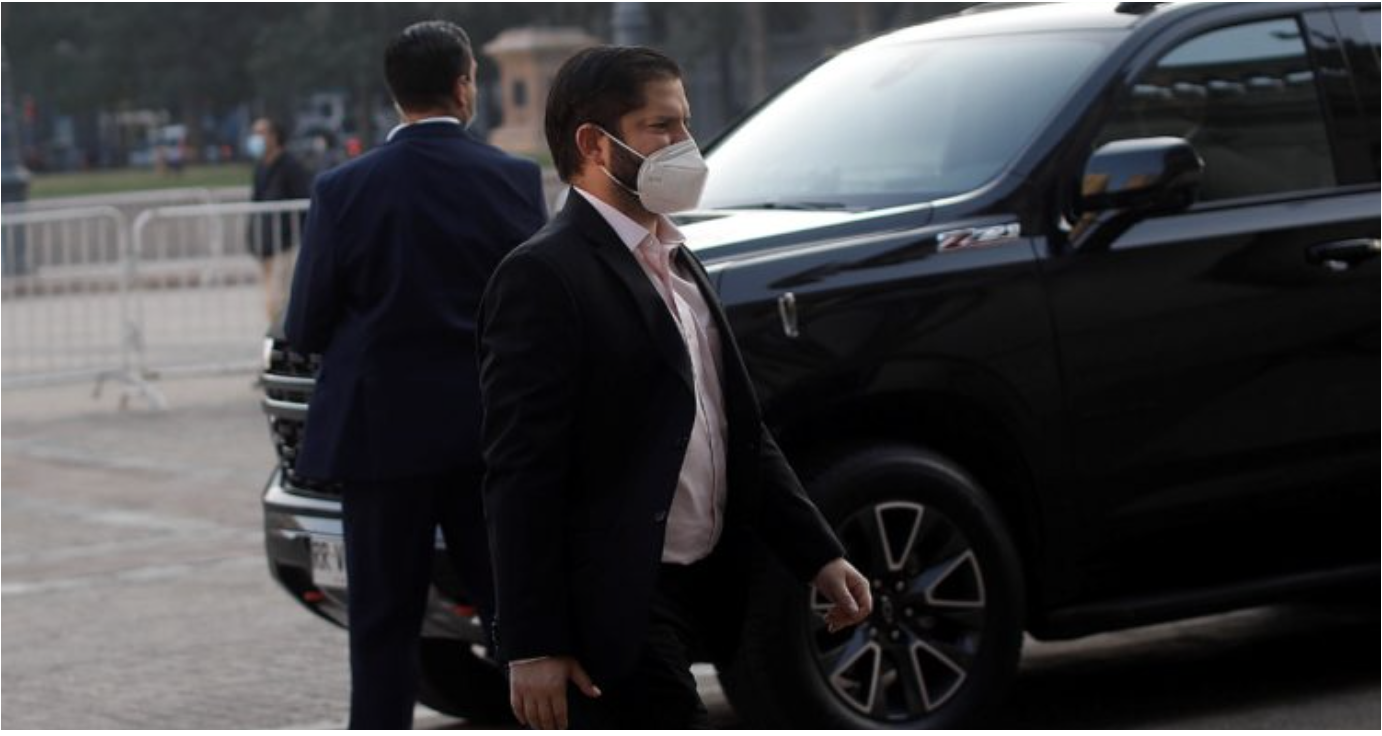This week, the government will present a constitutional reform that would allow the military to guard roads and routes in the so-called Southern Macrozone. This would be introduced as an amendment to the critical infrastructure bill.
The government's proposal to address the situation in the Southern Macrozone is about to be revealed.
President Gabriel Boric and his team have always opposed the application of the Constitutional State of Exception.
However, in recent weeks, the possibility of proposing an "intermediate state" has emerged.
The Executive Branch has increased its efforts to advance on this issue.
In fact, this was one of the main topics discussed at yesterday's expanded political committee meeting at La Moneda.
The government also met with truckers' unions to present the proposal, and Boric himself met with the head and deputy head of the DC senators' caucus to discuss security.
Following these meetings, government spokesperson Camila Vallejo confirmed that "a proposal has been worked on and discussed with lawmakers, given the concerns and worries about security, as well as the use of the Armed Forces in exceptional cases."
"We are working on different approaches. A proposal like this could open a path to a solution," she stated.
How would the government's proposed reform for the intermediate state be processed?
There was also a meeting between the Minister of the General Secretariat of the Presidency (Segpres), Giorgio Jackson, and the Interior Minister, Izkia Siches, with lawmakers who were part of the mixed committee reviewing the critical infrastructure bill.
Socialist Deputy Leonardo Soto, a member of the committee, explained how this new proposal would be processed.
"The President's amendment will be introduced to the bill initiated by a parliamentary motion from opposition senators," he began.
"Just as the previous government did, this one has the right to change its mind and present its own amendment, different from (Sebastián) Piñera's, but it will be done within the framework of the critical infrastructure protection bill," he added.
One of the bill's authors, Senator Carmen Gloria Aravena (RN), viewed the revival of the initiative positively.
However, the legislator said she would like other aspects to be considered.
"A step forward—I appreciate that. We are waiting to review the Executive's amendments (...) but I believe that, with time—and I hope I'm wrong—they will realize they should have incorporated all the instances the bill originally addressed," she stated.
Senator Matías Walker (DC), who would chair this mixed committee, said he supports incorporating critical infrastructure related to basic services for people, such as fuel, water, and gas supply, among others.
However, he noted that there would be no support from La Moneda for this.
Government and Call for Agreement on Security
Another key security issue was highlighted by the President himself during his trip to Magallanes, where he called for different political forces to unite around a national agreement on security.
Undoubtedly, this is one of the issues that most concerns citizens, which is why the President's call was well-received across much of the political spectrum.
However, the opposition—though expressing willingness to participate—said the Executive has sent mixed signals, and initiatives like the pardon bill for those detained during the social uprising "would make an agreement difficult."
This was reiterated by UDI president Senator Javier Macaya, who stated that minimum common ground must be reached.
However, he made it clear that the intention to pardon or grant amnesty to so-called "prisoners of the revolt" would complicate reaching an agreement.
Meanwhile, the party's general secretary, María José Hoffman, called for voting on the initiative.
Representing the ruling parties, acting PS president Andrés Santander stated that this bill would undoubtedly be part of the debate.
On Monday afternoon, there was also a meeting with RN representatives, indicating that efforts to bring all sectors together have already begun.
Source:biobiochile.cl







Comments (0)
No comments yet. Be the first to comment!
Leave a comment